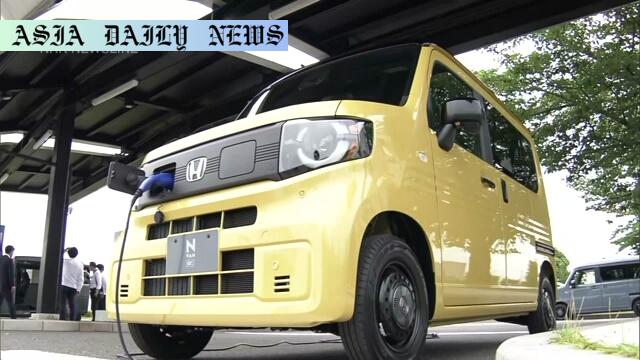Honda EV Target: The automaker reduces its FY2030 EV and fuel cell vehicle sales target from 30% to 20%, indicating market concerns.
Honda adjusts its FY2030 EV and fuel cell vehicle sales target from 30% to 20%.
The company cites market uncertainties for this reduction.
Despite cuts, Honda maintains its long-term commitment to 2040 EV goals.
The investment in electrification slashes from $68.4 billion to $48.4 billion.

Honda Scales Down FY2030 EV Goals
Honda Motor has made a significant adjustment to its electrification strategy, announcing a revision to its FY2030 target for electric vehicles (EVs) and fuel cell vehicles. The global narrative of transitioning toward cleaner energy solutions has been central to the automotive industry for years, but Honda’s leadership, under President and CEO Mibe Toshihiro, acknowledges a pause in the EV market’s growth. The ambitious goal of having 30% of its vehicles sold as EVs or fuel cell variants by FY2030 has now been trimmed to 20%, reflecting cautious projections amid mounting uncertainties.
Investment Cuts Mirror Market Trends
Accompanying the revised sales target is a marked reduction in Honda’s investment toward the development of EV and fuel cell technology. Initially planning to allocate 10 trillion yen (around $68.4 billion) over the span, the automaker will now divert a smaller budget of 7 trillion yen (roughly $48.4 billion). Honda attributes the change to recalibrated expectations for EV demand growth. Persistent challenges, such as fluctuating supply chain dynamics, global economic pressures, and slower-than-expected adoption of EV infrastructure, have brought pause to many stakeholders, including Honda.
Honda’s Long-term Vision Stays Firm
Despite these reductions, Honda remains steadfast in its long-term vision of making all its new vehicle sales comprised of EVs and fuel cell models by 2040. This goal aligns with broader decarbonization trends in the industry. For Honda, the focus is now about optimizing its development pipeline towards achieving a sustainable and technologically advanced product lineup while accounting for evolving consumer demands and market dynamics. The emphasis on innovation and foresight demonstrates Honda’s pragmatic approach as they navigate through current global challenges while safeguarding its commitments for the future.



Commentary
Honda’s Climate of Strategic Adjustment
Honda’s recent move to lower its FY2030 target for EV and fuel cell sales reflects a shift in the automaker’s strategies amidst a more cautious global economic and market environment. When announcements of such scale surface, they offer a dual perspective: one of adaptive pragmatism and another of potential opportunities reshaped by economies or technological pivots. What initially seems like a retreat could, in the context of corporate maneuvering, signify recalibrating itself to sustain operations effectively.
The Realigned Budget Signals Deliberate Change
Delving further, the cut from a massive $68.4 billion investment budget to $48.4 billion signals the focus on efficiency. It could mean that Honda acknowledges lessons that the existing EV rollout isn’t universally uniform and requires phased alignment based on markets while restructuring future momentum for stable deployment.